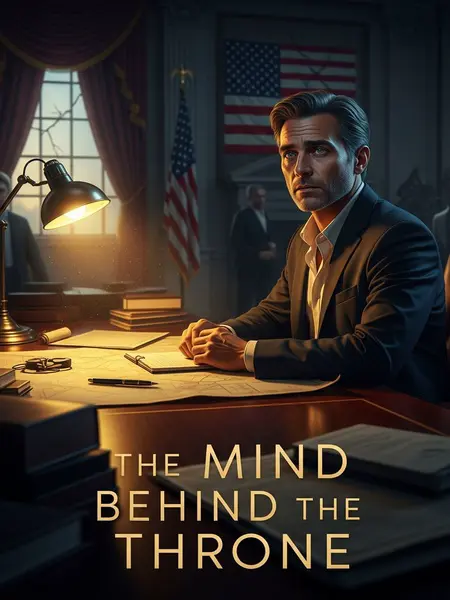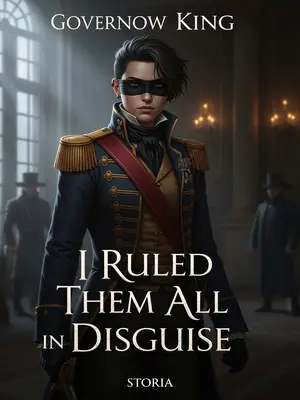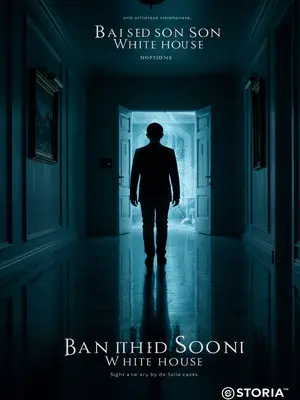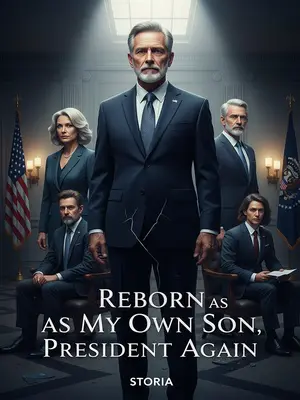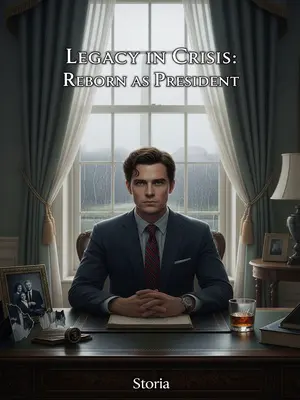Chapter 3: Gold, Betrayal, and Succession
A year later, Carter made Newton Secretary of the Treasury and put him in the Executive Office. The news brought applause and relief from those who valued competence over politics.
At that time, the national treasury was empty. The Fourth Son, Andrew Carter, managed the Treasury and often turned to Newton for advice. Newton grew fond of Andrew, seeing him as the best candidate for heir. Their talks were long and thoughtful, two men who understood the burden of responsibility.
Newton set up the "gold standard" system, and with Carter’s blessing, it was trialed and worked wonders, slowly refilling the treasury. The country’s finances stabilized, and hope crept back into government halls.
Unexpectedly, Richard rebelled again. Carter showed no mercy and locked him away for good. The decision was swift, the consequences harsh, and Richard faded from public life.
With the heir’s spot open, all the Carter sons started jockeying for position. The White House became a battleground of whispers and backroom deals.
By then, Newton was over sixty and didn’t want to get tangled in succession fights, so he tried to stay out of it. He spent more time in his study, surrounded by old books and pipe smoke.
But working in the Executive Office, Newton couldn’t avoid the pressure. Politics, like gravity, was always there.
While the Cabinet backed the Eighth Son, Newton picked Andrew. His support was subtle—a word here, a nudge there—but it made all the difference.
“Borrow the strength of Four, Nine, Nine, Four; in the coming years, you may hope for the Nine-Five…” That’s all Newton said to Andrew, who knew the value of a good riddle.
Nine-Five meant the top job—the presidency. But what about Nine-Four?
Andrew thought it over and finally realized: nine and four make thirteen—Newton was telling him to seek help from the Thirteenth Son.
As for Four-Nine, Andrew figured it meant Director Long, who oversaw forty-nine federal districts. The answer came late one night, tracing numbers across a map.
And "in the coming years" pointed to General Niles. The web of alliances started to form, each strand carefully woven.
Following Newton’s advice, Andrew built a four-person team to prep for succession. They met in secret, plans unfolding in the shadows.
In Carter’s sixtieth year as president, after the elders’ grand banquet, Carter kept Newton behind. The two sat together, the night stretching long and silent, decades of history between them.
“Secretary Newton, you’ve shielded me from storms for nearly fifty years. Now, I feel my days are numbered. Tell me—what do you see for the future?” Carter’s voice trembled, the years heavy on his shoulders.
Newton looked at Carter, ten years his junior but already worn down, and quietly pulled a prism from his jacket. The glass caught the last of the sunlight, scattering rainbows across the table.
He held it up, and strange colors danced on the table. The colors flickered—bright, fleeting, like memories.
“Mr. President, this is something I found in my optical research. White light is really a mix of many kinds of light, separated only by a prism. Some sons are like that. But some are pure—their words and deeds match, their hearts serve the country. Even under this prism, they stay true.” Newton’s words hung in the air, gentle but firm.
Newton didn’t say it outright, but Carter understood. He nodded, a single tear glinting in his eye.
A few months later, Carter died, leaving the presidency to Andrew Carter. The funeral was somber, the nation in mourning.
After Andrew took office, Newton was named chief advisor to the Executive Office. But with age catching up, daily affairs went to the Eighth Son, Thirteenth Son, Director Long, and others. Newton became a living legend, advice sought but never forced.
Grateful for Newton’s help, Andrew promoted him to Duke of the First Rank and decreed that after his death, he’d be honored in the National Hall of Heroes. The decree was read on the Capitol steps, the crowd erupting in cheers.
People called him “Duke Newton.” His portrait hung in schools and courthouses, kids reciting his deeds alongside Washington and Lincoln.
Looking back, Newton’s only regret was that works like ‘Classical Mechanics’ couldn’t be published. So he spent his last years revising them, tweaking phrases like “where there’s pressure, there’s pushback” to avoid misunderstanding, hoping his life’s work would help generations to come. He worked late into the night, candlelight flickering over stacks of paper.
During Andrew’s purge of the Eighth Son’s faction, Newton stayed out of it. He watched from above, a silent observer as power shifted again.
When Andrew took office, he inherited a mess. The government was stretched thin, the future uncertain.
The treasury was empty, so Andrew ordered all states to refill their coffers fast. The order went out by telegraph, and governors scrambled to comply.
Even Kansas, deep in debt for years, suddenly filled its shortfall. Andrew was pleased—then suspicious. The numbers didn’t add up, and he smelled trouble.
